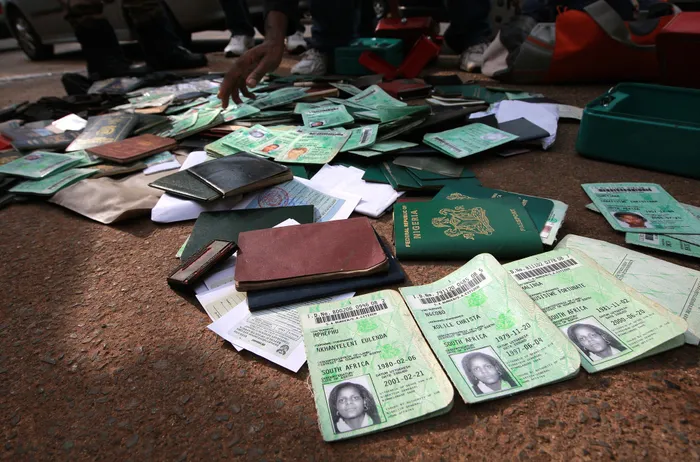The migration crisis demands action not virtue signalling
OPINION

Fake passports and ID books seized by police in a multidisciplinary raid. A Pakistani national was recently arrested for issuing illegal South African passports to undocumented foreign nationals. The issue of illegal migration needs action and policies.
Image: Independent Newspapers Archives

Sandile Mdadane is the Editor of the Sunday Tribune
Image: File
South Africa is grappling with one of the most urgent yet poorly managed challenges of the democratic era: migration.
An estimated two to five million foreign nationals live in the country, many without legal documentation. This reality is stretching the limits of state capacity, eroding the rule of law, and straining already fragile social cohesion.
The Department of Home Affairs cannot provide reliable figures on undocumented migrants, a failure that exposes the weaknesses of our migration system. Porous borders and corruption have created an environment where policy exists largely on paper.
South Africa is also a destination for thousands of asylum seekers from across the continent. Officially, the country processes among the highest number of asylum applications globally, yet very few are approved. The backlog has created fertile ground for corruption.
Law enforcement officers exploit those in limbo for bribes, while unscrupulous employers take advantage of undocumented workers, hiring them at exploitative wages in retail, logistics, agriculture, mining, construction, and hospitality. They dominate the spaza shop market, giving oxygen to the tensions with local business owners who feel squeezed out.
The perception, and in some cases the reality, that foreign nationals are linked to crime and cheap labour has fuelled public anger. For South Africans battling over 30% unemployment, collapsing service delivery, and chronic housing shortages, frustration is not abstract.
This is why grassroots movements such as March and March and Operation Dudula, often dismissed as xenophobic by critics, resonate in many communities.
It is easy to condemn such actions as inhumane when you are removed from the public health system or social grants. On the ground, they are less about hatred of outsiders than about despair at a state that has failed to properly manage migration.
What South Africa needs is not virtue signalling nor scapegoating but a migration policy anchored in law, fairness, and capacity. Until then, the anger will fester, and the country will remain caught between rhetoric and reality.
SUNDAY TRIBUNE